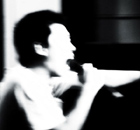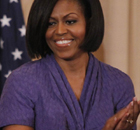Economy
Don't politicize yuan, China central bank tells Obama
(Agencies)
Updated: 2010-03-12 15:16
 |
Large Medium Small |
BEIJING - The United States should not make a political issue out of the yuan, a Chinese central banker said on Friday, as the two countries lurched towards a potentially serious clash about Beijing's currency regime.
People's Bank of China Vice Governor Su Ning was responding to a question about remarks on Thursday by US President Barack Obama, who called on China to move to a "more market-oriented exchange rate".
Speaking on the sidelines of China's annual session of parliament, Su said the United States should look to itself to boost its exports and not cast blame on other countries.
Obama's rare comment about the currency comes as his administration faces a decision over whether to label China a "currency manipulator" in a semi-annual Treasury Department report due on April 15. With Obama facing domestic pressure to take a tough line against China, this US Treasury report could be a tipping point.
If China flinches, it may soon resume the yuan appreciation halted in mid-2008 to cushion the country from the global credit crunch. If not, scattered trade spats between the two giants could escalate into a full-fledged dispute, with the US even considering across-the-board tariffs against Chinese products.
"The chances of a collision have never been higher," Stephen Green, China economist for Standard Charter. "In the United States, the debate has moved from 'is the renminbi a problem' to 'how do we resolve this problem'." The yuan is also called the renminbi.
Asked whether it might be counter-productive for Washington to ratchet up pressure over the yuan, Green said: "That's the $64-billion question to which no one really knows the answer."
Li Jianwei, a director in Development Research Centre, a think-tank under China's cabinet, was unequivocal: demands for aggressive yuan appreciation will harm not only China but also the United States and others.
"A stronger yuan will hit exports and lead to a double dip in the Chinese economy, which in turn will hamper the global economic recovery," Li said.
CALM OVER INFLATION
Data this week showed that China has considerable growth momentum and mounting price pressures, leading many analysts to conclude that the central bank will soon increase reserve requirements for the third time this year.
The central bank has been trying to dispel worries over inflation after consumer prices rose more than expected to 2.7 percent in the year to February from 1.5 percent in the year to January.
"We had expected that February's CPI would be higher than January," Su said on Friday. After adjustment for seasonal factors, month-on-month inflation did not show any sign of accelerating, he said.
"We are still observing to see whether the price trend is upward or downward, but we hope prices can move down a little bit," he said. He added that inflation was likely to peak in June or July when the base effect caused by the comparison with last year started to fade.
Central bank governor Zhou Xiaochuan also sounded a soothing note on inflation on Thursday, describing February's jump as in line with his expectations.
China's central bank has increased required reserves twice this year as part of its efforts to slow rampant credit growth and prevent the economy from overheating, and economists suspect a third rise is imminent.
But officials have shied away from drastic tightening for fear that fragile global demand could still sap the economy and a senior central banker said it was?tough to strike the right balance between cooling lending while sustaining growth.
Most economists do no not expect interest rates to rise until the second quarter at the earliest.
"The market is in a wait-and-see mode now. The PBOC may want to wait to see March data before deciding whether to tighten monetary policy and raise interest rates," said a money market trader at a mid-sized bank in Shanghai.











